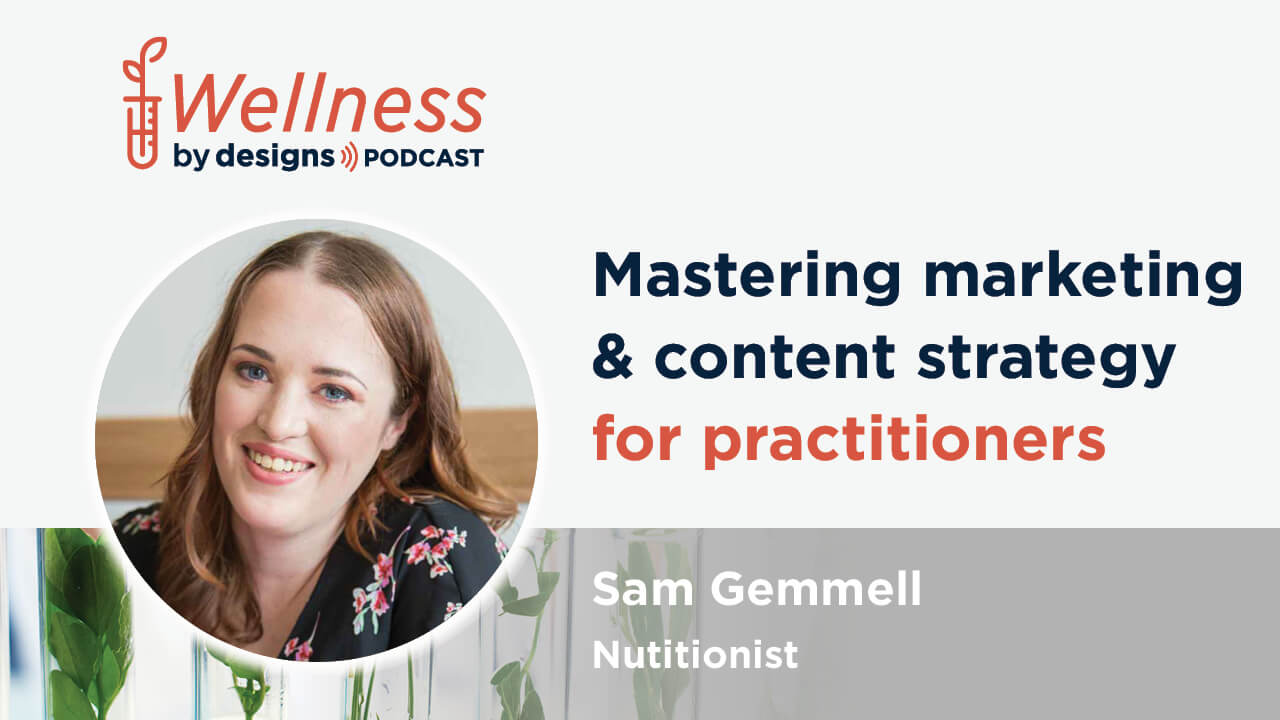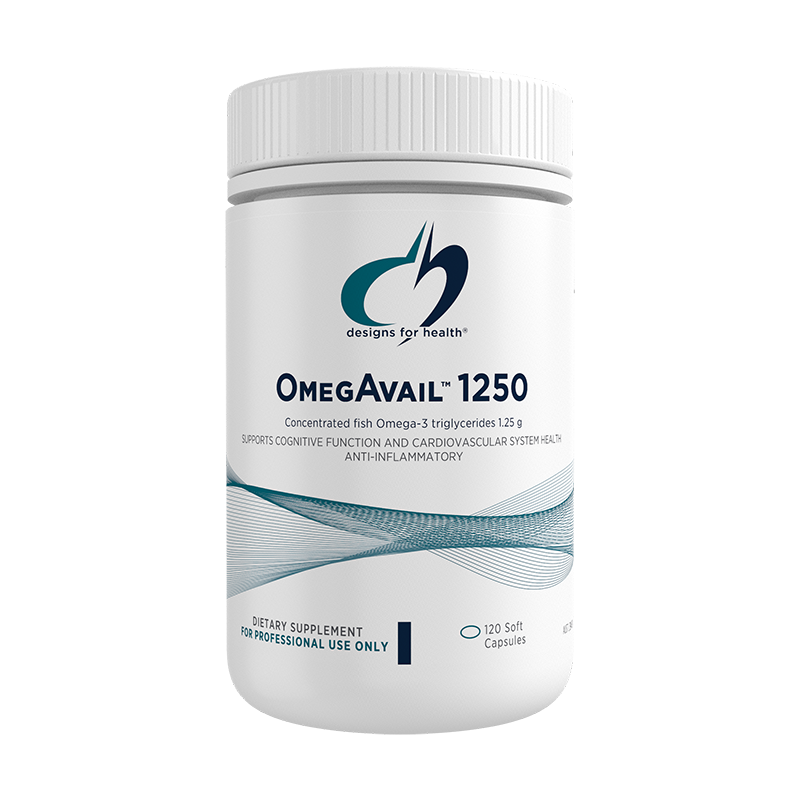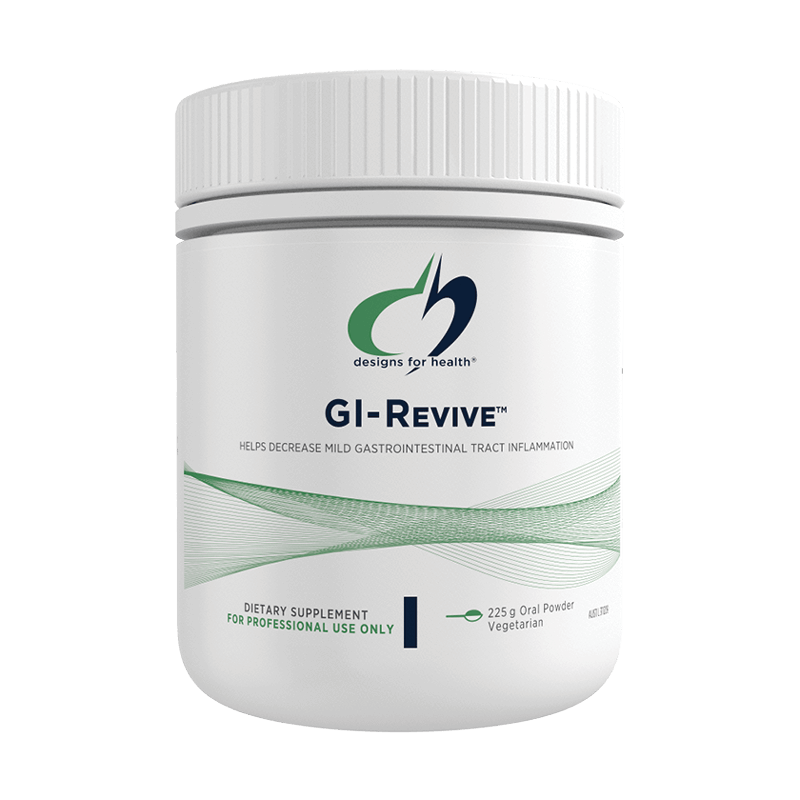

Today, we’re chatting with Sam Gemmell, a Nutritionist who works with practitioners to master their marketing.
In this episode, Sam discusses:
- Why praccies dislike Marketing?
- Where should we start with marketing?
- How can we make our Marketing our own?
- When should you do it yourself, and when should you outsource?
About Sam:
Samantha is a qualified nutritionist turned content creator & marketer for health practitioners. She believes that everyone can find a way to market themselves that is ick-free, easy and even fun! If your goal is to build a loyal community and thriving business, Sam is here to help.
Connect with Sam:
Website: samanthagemmell.com
Instagram: @samthehealthwriter
Transcript
Introduction
Andrew: This is “Wellness by Designs,” and I’m your host, Andrew Whitfield-Cook. Today, we’re chatting with Sam Gemmell, a Nutritionist who works with practitioners to master their marketing. Welcome to “Wellness by Designs,” Sam. How are you?
Sam: Thank you so much for having me. I’m great, how are you?
Andrew: Really good. Thanks, Sam. So, let’s get into the nuts and bolts of it straight away. Why do practitioners so dislike marketing?
Sam: There’s a lot of different reasons, and it really does depend on the person. But some of the really common ones I come across include that whole broke healer mindset, where they think that being a practitioner can’t be lucrative, so if they’re marketing themselves, they’re gonna make too much money. They’ve had previous experiences with the sleazy car salesman kind of pictures.
They have a misconception about what marketing is all about, that they’re there to force people to work with them, or con people into working with them, lack of confidence, imposter syndrome, so all of those mindset issues. So, there’s a host of different reasons and it seems like the health profession, particularly the natural health profession is just like this perfect storm of all of these factors that make us more vulnerable to feeling uncomfortable with marketing ourselves.
But the unfortunate thing is that no matter what you do as a practitioner, if you are working as a practitioner in your own business, you have a personal brand, whether you like it or not, and you need to market whether you like it or not. So, your best bet is to actually embrace that and get it to work for you.
Andrew: Yeah. Well, I totally hear you. And you know what, I really think we have to talk about what practitioners are told from day one about their value, and we have to really change that mindset about what natural medicine practitioners bring to the community. And I’ve discussed this with Amy Steele, that we really are on the vanguard of new avenues of hope for treatments.
So, you know, we can talk about fish oil, we can talk about home assisting, we can talk about tests like N-Telopeptides, which were laughed at and got forward and even lambasted as being charlatan, and now they’re Orthodox in bone health. So, there’s a number of ways in which naturopaths are really the harbingers of the new wave of health.
Sam: Absolutely. And if you think about any other industry, even within the health profession, you don’t have physiotherapists questioning how much they are worth. You don’t have medical doctors worrying that if they put something out on Facebook about, you know, getting a flu vaccine that someone’s gonna judge them, it really is that perfect storm for our profession because we have been looked down on for so many decades now, and we’re finally coming back and people are starting to notice what a huge difference natural medicine does actually make.
Andrew: Yeah. Okay. So where do we start with marketing? Do we think straight away just getting into a strategy, or do we have to take a real step back and look at ourselves about who we think we are, and perhaps get a better perspective on that?
Sam: Absolutely. I am a huge advocate of keeping it really simple and keeping it really basic particularly when you’re first starting out. The big thing is figuring out who you are as a practitioner and who you wanna work with because there’s no point in marketing yourself if you have no idea who you are actually talking to when you put yourself out there. So, figure out the people who that you wanna work with, figure out the people who that you don’t wanna work with. And then in terms of strategy, I am a massive advocate for starting off really slow, steady and working on what you are good at.
So, I always say for new practitioners particularly, when you first get out there, pick one social media platform that you are at least comfortable with, probably the one that you use the most personally, and one other form of marketing. Whether it be writing blogs, doing Facebook lives or videos for YouTube, having your own podcast, something that’s got a lot of content in it. And honestly, you can have an incredibly successful business just using those two methods of marketing.
Andrew: Okay. So, let’s go back to that budding, young, fresh naturopath just out of college, out of uni. They have no idea about specialties, they have very little confidence in their own abilities, they’ve done their clinic, you know, they’ve gotten through helping people and they’re safe, but not expert. How does one choose an avenue to go down? Do you take people through about finding out who that person is? Do you actually go back into their core, help them with their, you know, even things like self-esteem for instance?
Sam: Yeah, absolutely. As much as marketing strategy is a big part of what I do, you can’t ignore the mindset part of it, and you can’t ignore your journey. Because your journey from, you know, your own health, becoming a practitioner, everything within that is part of a story that allows you to relate to other people. So, most of the time when people aren’t certain what they wanna work with, I suggest starting off in the area that first drew them to natural health in the first place, which is typically their own health journey. The other thing is that it does adapt over time.
I’ve had multiple different niches and focuses over my business, and a lot of successful practitioners have as well. It’s not a life sentence, it’s just something that makes it really easy for you to sit there when you are staring at a blank screen going, “Oh gosh, what am I gonna post on Facebook this week?” You can think of it from the perspective of the person you wanna be working with and go, “Okay, what would be really useful for them to know right now? What kind of questions can I ask that person so that I can understand where they’re at and how I can best help them?”
Andrew: Although it was a slightly different topic, Amie Skilton, taught me a very valuable lesson and it was cementing other lessons from, you know, very famous positive thinking people. I can’t remember his name, Tony…
Sam: Tony Roberts?
Andrew: Yeah, Tony Roberts, thank you. Big, tall, black, with a massive jaw. And it was whatever you are going to do, it always must revolve around being of service. The movement of money has got to do with being of service. You give something of service to somebody else, they give you money in return, or other things in return. And so, I had this really big lesson from Amie about always feeling or finding out how you can be present and of service to that client, that audience, that whatever.
And it’s a big thing that perhaps, you know, I’ll always remember Clinic Law Ethics in Business, and it was an extremely cold subject which taught us very little. And I really wonder if they would’ve gotten a lot more traction from that course, that subject, if they would’ve taught practitioners some real core self-help strategies to start with, you know, to then launch from?
Sam: Yeah. It’s definitely something that’s slowly improving over the years. My mother is actually a student naturopath at the moment, and she’s recently done the whole business marketing subject and I believe it’s improving. I believe I was actually referred to by one of the lecturers, which was quite a nice little buzz for me. But, yeah, absolutely, marketing is always two prongs of strategy and mindset. And you can have the best marketing mindset in the world, but if you’re not putting it out there where your ideal client is, you’re not gonna get traction.
You can have the best marketing strategy in the world, but if you’re getting caught up in your mindset, or if you are afraid to niche down because you think you’re not gonna get enough clients out of it, all of that sort of thing, then you’re also not going to get any traction whatsoever. That’s a big one for niching actually that I get asked about is, you know, “If I niche down to these really, you know, specific things, I’m not gonna get enough clients.” And I always give the example of myself.
I don’t practice much anymore, simply because marketing keeps me busy in everything that I create, but when I do practice, I have two incredibly small niches of scleroderma and Ehlers-Danlos syndrome, which are, you know, basically two opposite ends of the connective tissue spectrum.
And I still get messaged every week or two from people wanting appointments with me, because I’ve built my reputation up in these areas. And that’s all you need to do for the smaller niches. It’s actually easier to market yourself because there’s fewer people that specialize in that area.
Andrew: Gotcha. Then, I’ve gotta say that’s an extremely niched topic there. EDS, that’s more prevalent than what we think, but scleroderma, that’s a real niche thing. So, take us back then, if we think about that war that you spoke about at the beginning between marketing and ethics.
We see commonly, you know, examples on the TV, interestingly in the medical field, you’ll see things like skin cancer doctors, cosmetic surgeons advertising on TV now. So, how do we gel ourselves with our ethics, knowing that they’re doing it and they’re within their ethical framework as well? We haven’t got it right yet. What sort of hurdles do we have to come across with ethics?
Sam: Yeah. The thing with ethics is that you’ve got ethics as a profession, and then you’ve also got your own personal ethics as well, and your own morals, your own sense of right and wrong. But the example that I like to give with this is that, because a lot of people think marketing is about pushing, convincing, manipulating, and that is 100% not the approach that I use at all. I look at marketing as a way of offering information, education, and for the people who want the next step of personalized support, they can choose to work with you.
So, the thing with people who are following you, particularly on social media, is that the majority of them won’t ever work with you, but that doesn’t mean that the information that you put out there isn’t of service. When you market yourself, you are really putting information out there that is going to change lives, whether they work with you or not. So, for me, as long as you are marketing from a place of, like we’ve discussed, service, putting out an offer rather than trying to manipulate people into it, that’s the really, I guess, important thing.
And the interesting thing is that people are actually marketing all the time, they just don’t realize it. I could tell you about my favorite cafes here in Melbourne, and tell you what the most amazing dishes are, what coffee to get, all of that. And that is me actually marketing for those businesses, whether I know it or not. All I’m doing is talking about the things that I love and suggesting that people check it out if they want to. And that’s exactly how I approach my marketing as well.
Andrew: That’s a very interesting thing what you bring up, and that needs marketing. So, instead of pushing somebody, if you like, you spoke about the sleazy salesman of the 1980s and things, those days are gone. And there’s a great example about sales if you like, with a 1980s-type sales manager, interviewing a prospective salesperson saying, “Sell me a pen. Sell me this pen.”
And he said, “No.” He said, “Why not?” He said, “Because you’ve already got a pen.” He said, “What I wanna do, is I wanna find people who need a pen.” That’s sales, it’s finding out who needs that service. So, as you say, it’s getting the right message out. So then, of course, we have to speak about, you’ve gotten the right message, how do you get that message to the person who needs it? Where do we choose what avenue is best for your particular patient?
Sam: Well, the good news is it’s easier than ever these days. There are so many options out there. So all you need to really do is put yourself into the shoes of that ideal person and figure out where they’re hanging out, particularly online, and where they’re looking for help. So, if you wanna be working with 16-year-olds, you need to be on TikTok. But if you wanna be working with 60-year-olds, please don’t bother going on TikTok because you won’t get very much traction at all. You are better off…
Andrew: Not many.
Sam: No, you’ll be better off being on Facebook and even doing things like, you know, going to your local community centers for some in-person marketing, doing some workshops there. So, you really need to get into the head of your ideal client. And usually by this point, if you’ve decided on an ideal client, you’ve usually had at least one person who’s pretty close to your perfect client.
And that person that you just wish you could clone and just see 20 of them per week and your life would be fantastic, think about where they’re hanging out and even ask them where they’re hanging out, where they found you. So, you’ve got plenty of online options, Facebook is a great one for pretty much anyone 30 plus, you’ve got Instagram is good for your 20s up to your sort of 40s, you’ve got TikTok, you’ve got LinkedIn for your corporate people, and, of course, you’ve got having your own website and optimizing that for people who are looking for the sort of services you provide as well.
And I could go on for hours about different marketing options, but it really does come down to where that ideal client is hanging out, and where they’re looking for help or at least information, if they’re early on their health journey, if they’re just starting to suspect something’s not quite right.
Andrew: Gotcha. And how do you take practitioners through SEO, search engine optimization? So for instance, you know, one of my favorite channels to just watch on YouTube is this woodworking guy. Amazing work, but he was talking about his journey, how he had no idea. It was actually as is always the case, his wife sitting in the background rolling her eyes, going, “Have you heard of this thing called the hashtag?”
But again, that’s for that sort of that type of media, you know, the Instagram, that sort of thing. What about search engine optimization with just words? So, for instance, the importance of, as you say, a blog, or the importance of choosing the right words in a transcript or something like that. How do you take practitioners through that? Do you teach them so that in the end they actually probably won’t need you, they’ll be able to do it themselves?
Sam: Listen, that is my ultimate goal with a lot of people, is that I can teach them how to do it themselves. Even the VIP clients I’ve worked with, when they’ve had to shut down over the pandemic, they’ve been able to take over their own marketing and really continue to succeed. SEO is one of those ones where it sort of spans over a couple of different, I guess, modalities. So I do work with it as someone who writes content and strategizes.
And you’ve also obviously got your website designers who also work on that as well. So, I’m very much a long-game approach when it comes to SEO, and that is why I love blogging because that means you’re consistently feeding those keywords into Google so that Google and the other search engines figure it out that you are really good at talking about that particular topic.
So, you need to think about things like if you are in a physical clinic, you need to be popping words like your local suburbs into your blogs whenever you can, onto your website whenever you can, and the more you do that the better it is. And it doesn’t have to be in like a, I guess, a keyword stuffing way where you just throw all of the suburbs down the bottom of every single blog, you can do things like refer to your favorite cafe that is a suburb or two over, but is quite a big suburb and that’s where people might be searching for a naturopath or a nutritionist.
The same way as you’re never gonna get to the top of Google for naturopath because that’s just not gonna happen. The internet’s been around way too long and there’s websites that are a lot older than yours, but you might be able to become the top result for naturopath Freemantle if you are located in Freemantle, and you do that by continuing to talk about naturopath, by continuing to talk about Freemantle in the local areas, and Google is going to pick that up the more you do it, and over time it builds up as well.
So, it’s not one of these things where you can quickly get to the top of it, it usually takes three to six months to really bump your results up possibly longer depending on how many practitioners are in your specific area, and the same goes for your niche as well. You may not get to the top of, you know, fertility naturopath, but you might become quite up there for fertility naturopath Australia for someone who’s looking for at least an Australian naturopath.
So, all it comes down to is thinking about what people are looking for when they’re looking to work with someone like you. And that depends on where they’re at on their journey, whether they’re quite early on, and they’re looking for, you know, natural remedies for infertility, through to them looking for a specific practitioner to work with on their journey.
Andrew: And what about reach, extending your reach? Like for instance, you know, I guess this would be more for the practitioners that have been in it for a while that want to extend their reach. So, for instance, podcasts. You talk about blogs, and blogs are available over the world, but with podcasts and social media, you can hook into the…forgive me, I’ve just gone blank on the name.
The customers, if you like subscribers of somebody else’s podcast, and there’s a way of linking for instance. So, take us through what happens there, how do you hold onto the shirt ties of somebody else who’s successful and sort of ride into their social media network?
Sam: Yeah. And listen, this is where collaborations make a big difference. I’m often collaborating with other people who are in, I guess, the service of other health professionals sort of area, but also, you know, I can hook into some of my successful practitioners that I’ve worked with, and I’ve done that by bringing them onto my own podcast, but then I’m also appearing on other people’s podcasts.
So, the thing about content, particularly for people who are quite established is that we do tend to get a little bit over it and a little bit lazy, and there is nothing better than someone else creating a piece of content and tagging us in it so that we can actually use that, reshare it, so that we are showing up online, and that’s one less piece of content that we have to create.
And that is something that a lot of practitioners can use, is that they can be creating their own content and if it gets the attention of the practitioners that they’ve shared it with, or that follow them, you can actually get quite a few followers and quite a lot of reach by collaborating with other people, by giving resources out there that other people can use
I’ve seen some fantastic infographics lately being created by sort of the newer generation of practitioners. And it’s been shared by the bigger names, you know, the big naturopaths out there. It’s getting shared by Jules Galloway, it’s getting shared by Jess Donovan, and these are people who have tens of thousands of followers across their networks.
And it’s simply because a practitioner went, “I really wanna create something useful about this topic.” And it’s something that’s resonated with so many practitioners, and they’re getting this huge reach. Like I can only imagine how many tens of thousands of eyes have now been on a piece of content that they probably created spur of the moment and put up there because they were passionate about it.
Andrew: Yeah. And it comes through all the time, passion, service, collaboration. There’s nothing mean and me about marketing. It all has to do these days with sharing, and collaboration, and being of service, and win-win, doesn’t it?
Sam: Absolutely. That is my motto. I’m very much a collaboration over competition kind of person, and that’s why I get so excited to see practitioners creating these amazing things and getting their due and going viral because of the support of the community.
Andrew: Absolutely. So, I’ve got one last question for you, Sam, and that is, we spoke earlier about getting somebody to a point where they’re competent enough to do it themselves. But, of course, by that stage hopefully, they’re busy enough that they go, “Yeah, no.” So, when should you do it yourself and when should you outsource?
Sam: Yes. So, this is a very common question I come across. So when you start out unless you’ve got an amazing financial buffer behind you or you’ve got, you know, a good amount of money to invest in your business, which is not the case for most practitioners, you probably want to start out by doing it yourself.
I also think it’s a good idea to do this so that you have time to get to know your ideal client, get to know your niche, get to know who they are, what they wanna know, and how you can help them, because that’s something really important that you need to understand, even if you’re gonna outsource because you need to be able to communicate that to whoever you are outsourcing to.
However, I do often recommend that you start outsourcing before you think you are ready. Because if you finally get to the point where you think you are ready, you probably should have outsourced long ago and you’ve probably burnt yourself out trying to do everything. So, I really do recommend thinking about rather than being like, “Oh, it’s gonna cost me this much money and I don’t know if I can consistently pay that much.”
Think about the return on investment for you outsourcing those hours per week, that you’re spending on your marketing or really anything in your business. How many clients could you be working with if you weren’t spending four hours a week curating your marketing? How many passive streams, new offers, new products could you create if you had not only that time, but also that energy, because when you are not 100% into marketing yourself, it actually takes more energy for you to market yourself than if you actually genuinely enjoyed it. You’re kind of, you know, pushing a rock uphill and tiring yourself out.
So, I usually say outsource before you’re ready. There are actually more affordable options out there than you think, there are VAs who don’t lock you into a contract. So, you might need them for five hours one month, and one hour the next, and 20 hours the next because you have a really busy month coming up or you’ve got something that you wanna launch.
So, there is actually a lot of flexibility in the support options these days, and there are some really amazing VAs out there, health practitioners or student practitioners themselves who are really wanting to help other practitioners succeed. So, I usually say if you are even asking the question whether it’s time to outsource yet, the answer is probably yes. And again, you just start with that one step at a time.
Andrew: Now, I said last question, but you just mentioned VAs. So, we have to explain that for people. But also, I’m gonna sort of debate with you a little bit about outsourcing later on, and that is because I’m a nupty with social media, absolute dinosaur. And so, I got to a stage where I was actually fearful about what do I do because I didn’t know what to do. I didn’t know what an SEO was, I had to learn that.
So, my opinion is to actually speak with somebody, and the younger generation will laugh at me I get it, but my opinion is to speak with somebody quite early on and get at least a brief idea of where you want to head and what’s your niche, what’s your way of going. Perhaps work with them for, you know, three or four months. Learn the stuff to a point where, “Yeah, okay, you may be competent to take some of the reigns,” and then you get busy enough to go, “No, no, no, that’s great. That’s back to you again.”
But I’m over mine in that beginning sort of section to go, “I really need help.” And as you say, the return on investment, later on, is way beyond you trying to struggle through mud. So, the second part of that question, if you’re like, is what’s a VA and how can they help us?
Sam: Well, first up, I will just say there are options out there for students who don’t want to outsource but do wanna learn that, and, Andrew, if you had been around when all of my courses were up, I could have saved you a whole lot of time and stress, and made it nice and simple for you. But a VA is just short for virtual assistant. Now, usually, when people think about virtual assistants, they think about, you know, email management, and data entry, and all of the, you know, really dull admin tasks out there.
But technically, a virtual assistant is any service that you can offer to another business provider, that is virtual in nature. So, these days you’ve got VAs that work in marketing, you’ve got VAs that work with web design, you’ve got VAs that design graphics, you’ve got VAs that manage events, even recipe development VAs are around. So, pretty much anything that isn’t you working with your clients one-on-one, that’s part of your business that you could potentially outsource, there’s probably an option out there for you.
Andrew: I love your work, Sam. I could talk to you for quite a long time and learn a hell of a lot. And I’m kicking myself under my chair about not getting onto your resources earlier. Sam Gemmell, thank you so much for saving us today with our marketing strategies and showing us that it’s not evil, that it’s a collaborative sharing thing.
I would always implore, guys, I’m sorry, I would always implore a woman to get involved because they know so much more than us. I’m gonna be hunted by many, but, Sam Gemmell, thank you so much for talking to us today about how we can master marketing.
Sam: Thanks for having me, Andrew.
Andrew: This is “Wellness by Designs,” and I’m your host, Andrew Whitfield-Cook.









 Exploring Integrative Dentistry with Dr Ron Ehrlich
Exploring Integrative Dentistry with Dr Ron Ehrlich Essential Insights into Gallbladder Function and Care with Amie Skilton
Essential Insights into Gallbladder Function and Care with Amie Skilton Natural Strategies for Men’s Health with Naturopath Jason Mallia
Natural Strategies for Men’s Health with Naturopath Jason Mallia